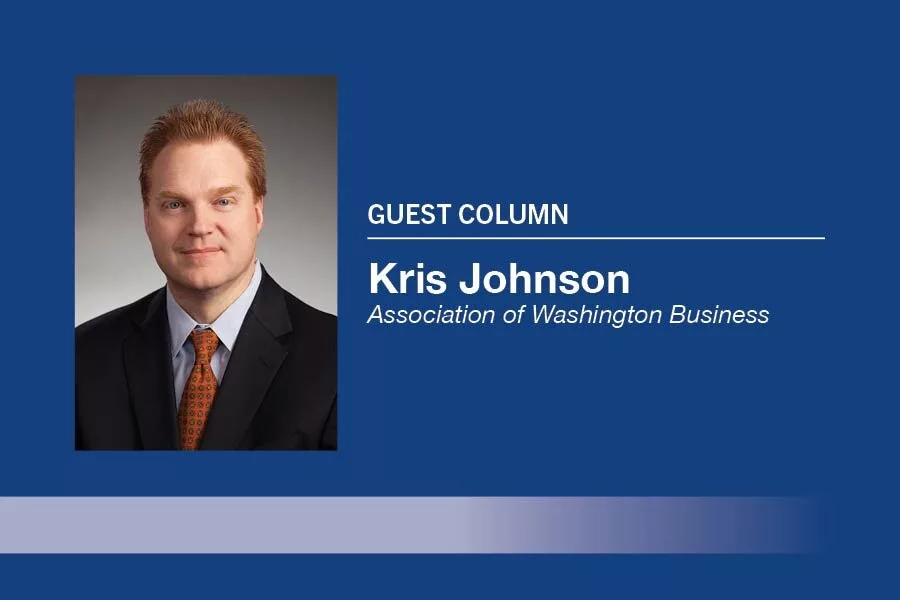
Home » The new year brings new hope for a return to calmer times
The new year brings new hope for a return to calmer times

January 12, 2024
As lawmakers kicked off the 2024 Washington legislative session Jan. 8, the state’s employer community remained on edge. The economy has proven remarkably resilient through years of extraordinary challenges, and yet there remains a sense of anxiousness and uncertainty about the future.
What’s going to happen next? Will the new year bring that elusive “soft landing?” Or will the economy slip into a recession?
One of the best ways lawmakers can help in a time like this is to provide employers with a measure of stability and predictability. The last few years have been anything but predictable, with one challenge after another beginning with the global pandemic and followed in quick succession by supply chain disruption, workforce shortages and spiking inflation. Employers are resourceful, and they have risen to the challenge. But it’s time for things to settle down. This is not the time to adopt new taxes and add new layers of burdensome regulation.
The good news is that state revenue continues to rise, meaning Washington will not be facing a budget shortfall this year. Also, this year is a short session, meaning lawmakers generally make only minor tweaks to the two-year budget that was just adopted.
Gov. Inslee’s proposed $70.9 billion spending plan, released in December, would grow the state budget by another $2.5 billion, pulling in part from reserves. It would be more prudent to build up reserves when state revenue is increasing rather than spending all the additional revenue and then some. This is not a rainy day. The state shouldn’t be spending rainy day funds. Hopefully legislators will propose a more sustainable budget plan that slows the trajectory of state spending, which has more than doubled in the last decade, going from $33.6 billion to nearly $70 billion.
We’re hopeful, as well, that legislators will find a way to reform and fix the Climate Commitment Act. Fuel costs were one of the drivers of post-pandemic inflation and nowhere was that more pronounced than here in Washington, which implemented the CCA’s cap-and-trade carbon auction market during the highest inflation spike in a half century. This has led voters to send an initiative to the Legislature to repeal the law. Lawmakers now have a chance this session to respond by making significant reforms to the CCA that would make it more stable and predictable.
Washington has set a goal of doubling manufacturing, and lawmakers will have a chance this session to make progress on the goal this year by adopting policies to incentivize growth. Those include lowering the business and occupation tax rate for manufacturers and offering tax credits to promote investment in manufacturing.
Washington is going to need to power our manufacturing base, and that means lawmakers need to ensure we have enough reliable and affordable energy to keep pace with demand. Energy sources like hydro and natural gas are under attack at a time when we’re going to need more power — a lot more power — not less.
Other issues that should receive attention in Olympia this year include workforce, which remains a major challenge for many employers, transportation (inflation has driven up the cost of projects) and housing, which was an area of progress in the 2023 session. Lawmakers should follow it up with more progress and avoid going backward with policies that make housing more expensive.
Whether the new year brings a soft landing or a recession, employers and families continue to feel the squeeze of higher costs in almost every part of their lives. As always, there is a limit to how much lawmakers can accomplish during a short 60-day session. A good place to start is, at the very least, doing no harm.
For too long, we’ve been making it harder, more complex and more expensive to run a business in Washington. We need to make it easier, not harder, to start a business, grow a business and sell a business.
That means giving employers certainty and predictability.
Kris Johnson is president of the Association of Washington Business, the state’s chamber of commerce and manufacturers association.
Latest News Opinion
KEYWORDS January 2024
Related Articles





